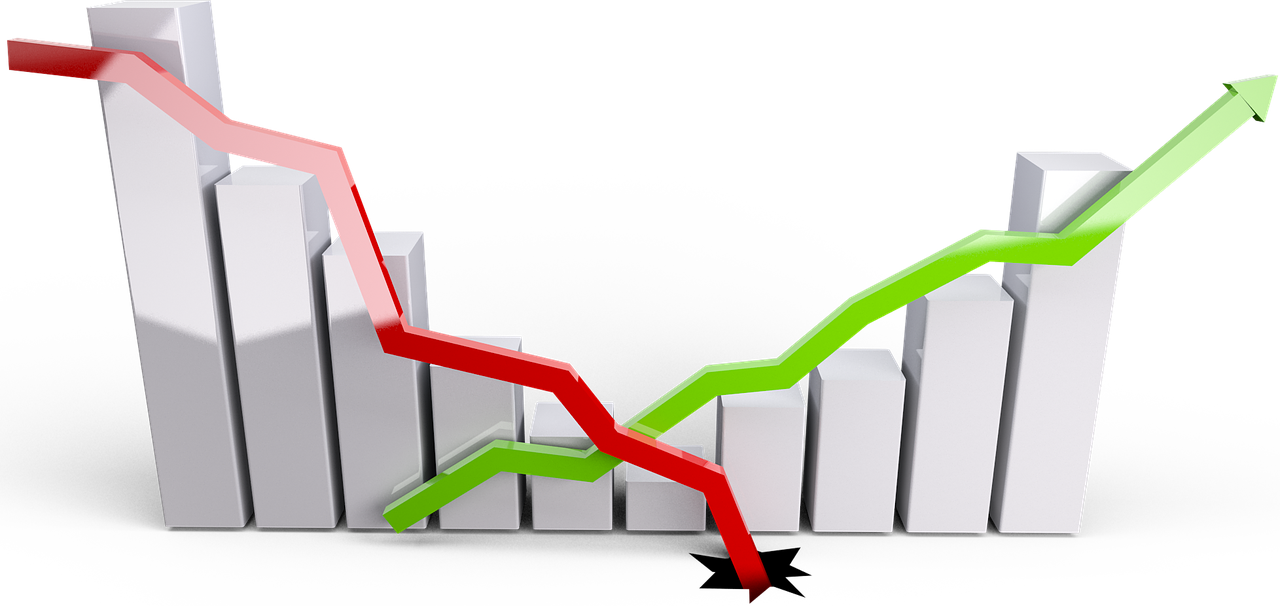Economists now expect a recession and job losses by next year
(-Written by Mumtaz Afrin): - According to The Wall Street Journal's most recent survey of analysts, the US will experience a recession in the next 12 months as the Federal Reserve fights to lower stubbornly high inflation, the economy weakens, and firms slash jobs in reaction. The average estimate of economists for the likelihood of a recession in the coming year is 63%, up from 49% in the July survey. Since July 2020, following the most recent brief but severe recession, this is the first time the survey has indicated that the probability is greater than 50%.
Their predictions for 2023 are getting gloomier and gloomier. Since the last quarterly poll, when they projected modest growth, economists have revised their predictions downward, and now believe that the gross domestic product will decline in the first two quarters of the year. Currently, economists anticipate that GDP will decline at an average annual rate of 0.2% in the first quarter of 2023 and by 0.1% in the second. According to the study conducted in July, they projected growth rates of 0.8% for the first quarter and 1% for the second.
Jobs are anticipated to be cut in the second and third quarters as a result of slower growth and weaker profits. According to economists, nonfarm payrolls will drop 34,000 on average per month in the second quarter and 38,000 in the third. In the most recent study, respondents predicted that throughout those two quarters, companies would add around 65,000 positions every month. Because forecasters are growing less confident that the Fed can raise rates indefinitely to reduce inflation without causing increased unemployment and an economic slowdown, they have raised their estimates for a recession. 58.9% of economists, up from 45.6% in July, believe the Fed will raise interest rates excessively and result in an unwarranted economic downturn.
According to economist Daniil Manaenkov of the University of Michigan, a "soft landing" will most likely remain a hypothetical scenario that never materializes. When the Fed tightens monetary policy to lower inflation without triggering a recession, it is referred to as a soft landing. According to Aneta Markowska, senior economist at Jefferies LLC, "the anticipated drag from higher rates and a stronger currency is huge and will knock out approximately 2.5 percentage points from next year's GDP" growth. "Given this, it's difficult to envision how the United States can avoid a recession."
According to economists' average predictions, a recession should be very brief in duration. The average length of a recession predicted by economists who believe there is a greater than 50% possibility of one occurring in the upcoming year was eight months. The typical post-World War II downturn lasted 10.2 months. Through the fourth quarter of 2023 compared to the fourth quarter of the previous year, they anticipate the GDP to increase by 0.4% for the entire year. They anticipate 1.8% economic growth in 2024.
However, economists anticipate a weakening of the labor market in the coming months and years. In June 2023, the unemployment rate, which was 3.5% in September, is expected to increase to 4.3%. The unemployment rate is expected to be 4.7% on average by the end of next year, and economists anticipate that it will largely remain that high until 2024. A 4.7% unemployment rate, while low by historical standards and indicative of the current labor scarcity, nevertheless shows that some employees may suffer as a result of the Fed's attempts to lower inflation.
The Federal Reserve must decide whether to accept a recession with higher unemployment today or risk the emergence of more damaging and persistent inflation "said KPMG's Diane Swonk. "Given the sins that low rates presumably covered up, the dangers of making a mistake are high, "Added she. The U.S. economy has seen volatility in recent years as a result of shocks like the Covid-19 outbreak and Russia's invasion of Ukraine. Before the epidemic, the economy expanded by 2.6% in 2019. In 2020, the GDP shrank by 1.5%, but it quickly recovered in 2021, growing by 5.7%. The economy is predicted to grow by just 0.2% this year as consumers and businesses struggle with high inflation and supply-chain difficulties.
Next year, it's anticipated that the Fed's interest rate rises will further reduce house demand. According to the seasonally adjusted purchase-only house price index from the U.S. Federal Housing Finance Agency, economists anticipate a 2.2% fall in home prices in 2023. That would be the first fall of that nature since 2011. At each of its last three meetings, most recently in September, the Fed increased the federal funds rate as its benchmark, bringing it to a range of 3% to 3.25%. The Federal Reserve is expected to maintain its current course and raise interest rates by 0.75 percentage points at its meeting next month as a result of another uncomfortably high inflation figure for September.
According to economists' expectations, the federal funds rate will climb by at least one additional half-point in December, reaching 4.267%. They predict that the federal funds rate will peak at 4.551% in June of the following year. The majority of analysts anticipate that the Fed will eventually need to change direction and begin lowering rates in late 2019 or early 2024. In the fourth quarter of 2023, 30% of economists predict that the central bank will drop interest rates, and in the first quarter of 2024, 28.3% predict that the central bank will do the same. From October 7 to October 11, 66 economists were polled for the study. Every question wasn't addressed by every economist.

